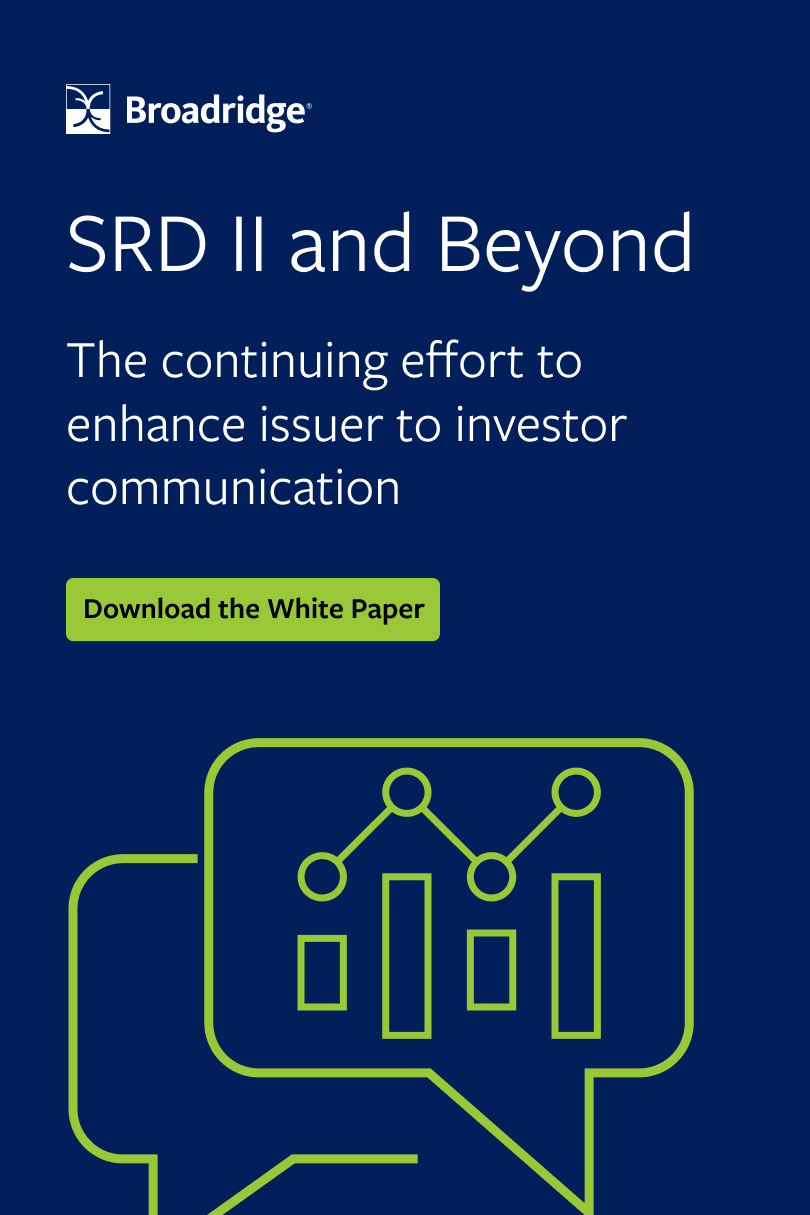Since the UK voted to leave the EU, firms of all shapes, sizes and sectors have had to consider what Brexit means for their business, and whether they can feasibly keep their major operations in London. And if not, where they could relocate to.
According to a report from Deloitte and Finance Dublin, 40 percent of Irish financial services firms expect their employment levels to increase as a direct result of Brexit.
Indeed, Citi, J.P. Morgan and Bank of America Merrill Lynch are among the big names that have announced plans to expand operations in Dublin. According to David Dalton, a consulting partner at Deloitte and financial services industry leader for Ireland, there are at least 300 firms that will be considering how they’re going to approach Brexit from a location strategy perspective. In the grand scheme of things, there are still “relatively small numbers that have declared what they are going to do”, says Dalton.
Kieran Donoghue, head of international financial services, corporate strategy and public policy at IDA Ireland, the Irish government’s inward investment promotion agency, is pragmatic in the face of Brexit.
He says: “The Irish government certainly didn’t want Brexit. We don’t believe it’s in the best interests of the EU, of Ireland or indeed of the UK. But, along with the UK authorities and the financial industry, we have to figure how best to respond to the challenges posed by Brexit.”
The IDA works with companies that are assessing whether Dublin, or Ireland as a whole, could play a part in their Brexit strategies. According to Donoghue, since the vote, the agency has seen between 80 and 100 enquiries from financial services groups, with a number of those translating into site visits.
It’s worth noting, however, that only around 30 percent of these enquiries come from firms completely new to Ireland. The other 70 percent “are familiar with our jurisdiction for financial services”, Donoghue says. “What they’re doing now is assessing Ireland’s suitability for either expansion of an existing business line, or for adding a new business line to their existing presence.”
A path well travelled
Ireland’s existing financial services industry plays a large part in its attractiveness, both to companies that already have operations there and those that don’t.
Pat Lardner, chief executive of Irish Funds, points to Ireland’s track record, suggesting that this could be comforting for those looking for some certainty, and for options. Irish Funds has worked with managers from more than 50 countries around the world, with a focus on finding the right solution for individual firms.
“If we can find a solution we will pursue that in a professional, sensible and commercially aggressive way, but only if we can find the right solution,” Lardner says. “It needs to be a win-win.”
If Ireland can provide such a solution, Lardner says it should be with as little uncertainty as possible, with regards to delivery, experience, and outcomes.
“Part of the reason people are coming here is because of the familiarity,” he says. “In Ireland, it’s not taking a risk.”
However, this familiarity extends beyond track record. Existing operations may be a big factor in a firm’s choice, but this is also true of other domiciles such as Frankfurt, Luxembourg and Paris.
Donoghue cites Ireland’s “physical, cultural and organisational proximity to London”, plus the simple fact that it is English-speaking.
He adds that Ireland boasts a 30 to 40 percent cost arbitrage compared to London, on a fully-loaded basis, and points to Ireland’s 12.5 percent tax rate. Finally, he suggests that Ireland is, and will continue to be, a major player in European industry discussions.
“Firms want to locate in a jurisdiction that will have some influence in the development of future policies for the industry and future regulatory frameworks. They know Ireland will be at the table and will have a voice in those discussions.”
A fork in the road
For those firms that already have operations in Ireland, the attraction isn’t just in familiarity, there are also practical points to consider.
UK Prime Minister Teresa May triggered Article 50 on 29 March 2017, formally beginning the two-year Brexit negotiating period.
By March 2019, financial services firms will have to be ready to service their EU clients, with the appropriate legal entities and regulatory authorisations firmly in place.
Donoghue says: “Depending on the size and complexity of the business, that’s a very challenging timeframe.”
The best way to ensure readiness is to “leverage or exploit an existing legal entity that either has an existing regulatory authorisation, or that could acquire a regulatory passport within two years”, he adds.
Large banks, broker-dealers, asset managers and insurers that have a significant proportion of EU-facing business don’t want to take any chances; they don’t want to find themselves at the back of the queue for regulatory authorisation and potentially unable to service their clients 18 months from now.
“Some of the largest and most complex groups have moved very quickly and very aggressively to complete location due diligence, and to begin their evaluation to decide what is best for them,” says Donoghue.
Such groups have had to work on the assumption that the outcome of the negotiations is going to be a ‘hard’ Brexit—that is, one with no third-party access, no third-country equivalence, no regulatory passports, and no market access as of March 2019. If that assumption holds true, Donoghue says, “the prudence of moving quickly will have been completely justified”.
On the other hand, groups that have a smaller proportion of EU-facing business must make a decision as to whether they continue to service that business. If they do, they will be considering how long it will take them to gain the appropriate authorisation.
The result of June’s general election in the UK has further “muddied the waters”, Donoghue says, with the diminished Conservative majority leading to speculation that a softer deal may be on the cards.
He adds: “Some groups have the view that gaining authorisation won’t take two years, giving themselves some leeway in which to complete the analysis and make their decision. Larger groups don’t have that option.”
New horizons
If Ireland is to benefit from Brexit, it will, again, likely be in the areas in which it is already has a footprint. According to Dalton, these include fund administration, custody, corporate banking and payments. Ireland’s financial technology sector is also growing.
Dalton says: “Obviously London has a fintech hub. We have a smaller, but very vibrant hub here.”
The Deloitte report asked respondents to rank locations based on their attractiveness for fintechs. Some 59 percent selected Ireland as their first choice, while London came in second, with 17 percent.
The results should perhaps be taken with a pinch of salt, considering that survey respondents were Irish financial services firms, but they do show that Irish professionals have faith in their fintech industry. Respondents praised the support from IDA Ireland in setting up fintechs, as well as the market for talent and the existing technology company investments in the country.
Dalton says: “Fintechs, particularly those that have regulatory obligations or require authorisation, will need to consider their location strategies, but they’re probably not as advanced in those discussions as the larger players are.”
“We have a very strong technology sector here, with many global players having a significant presence here. So it could be an interesting growth area, with fintechs from the UK looking to create a presence within the EU.”
To make the point, Lardner says that, from his office window, he can see the headquarters of Google, Facebook and LinkedIn, as well as the fintech innovation lab at Trinity College, the innovation centres of University College Dublin, and a building that has been refurbished especially to house startups.
“The infrastructure is here, but it would be wrong to suggest that this is a result of the Brexit discussion,” Lardner says.
“Brexit has simply re-emphasised the importance of the fintech space—these startups will be servicing EU clients.”
However, Lardner also draws attention to the legacy of the workforce in Dublin, and in other Irish cities, suggesting that the strength of the financial services sector in Ireland has led to strong educational ties in this area, which has in turn led to a pipeline of well-educated and tech-savvy young people coming into the industry.
“There are really good educational links between the universities and industry firms in the likes of Cork, Limerick and Galway, as well as in Dublin,” he says.
Lardner adds: “We’ve had a longevity of financial services firms being here, and the curriculum development reflects that, whether it’s in specialist programmes in capital markets, or around data analytics or artificial intelligence technology.”
Clear roads ahead
Over a year on from the Brexit vote, is there any more clarity as to Ireland’s position? On the one hand, it’s clear that some firms at least should be making decisions now. On the other, there are still unknowns that will likely remain until the negotiations conclude. Dalton suggests that, for UK financial services businesses in particular, a key issue in the negotiating process is that of passporting and regulatory equivalence.
“An agreement on passporting issues would really reduce the impact on the UK financial services industry,” he says. “What is becoming apparent, as the negotiations and position papers have come through, is that passporting isn’t really on the UK government’s agenda.”
He adds that any equivalence will be a “privilege, rather than a legislation”, and advises: “It may be unwise to rely on that happening if you’re a firm considering your strategy at this point.”
Irish Funds’s focus has been to ensure the continuation of fund distribution into the UK for Ireland- and EU-domiciled funds, and to make sure savings patterns, which support the economy, continue.
Lardner says: “Authorities want to get money into the economy, they want market-based sources of financing, and they have real needs around investment and deploying capital. A lot of that is through funds.”
He also advocates “the continuing ability of entities in the UK to provide part of the value chain around investment advice and investment management, so they can reach and distribute products and services into the EU”.
While accepting that the issues are tied up in “bigger, broader political debates”, Lardner calls for communication, saying: “It has been, and continues to be, a time when it’s important to talk to each other more rather than less. More dialogue and more interaction is required.”
“We need to maintain continuity of service without disrupting savings patterns and without creating the potential for events that might be disruptive for markets, all the while remembering that before we had any of these discussions the position we were in was that people weren’t saving enough. That hasn’t changed and we need to get on with those things, as well.”
The rear view mirror
Brexit may have an effect on financial services in Ireland, but Donoghue stresses that this doesn’t mean firms are turning their backs on London altogether, and that the British capital will remain “a major global financial hub in its own right”.
“What firms are doing is re-domiciling the EU-facing part of their business in an EU jurisdiction, to preserve market access. They’re not abandoning London, they’re just reconfiguring their businesses to adjust to the challenges of Brexit.”
However, even pre-Brexit, there was evidence of groups scaling back their presence in London anyway, considering the ways in which they could reconfigure their networks to reduce costs and concentration risk.
“The financial services industry in Europe is moving to a more decentralised, more distributed model. That is not just a consequence of Brexit, but the vote has hastened that optimisation process,” Donoghue says.
“Had the referendum gone the other way, we would still be seeing the same shift, but it would have been a slower process, much less obvious and much less public.”



